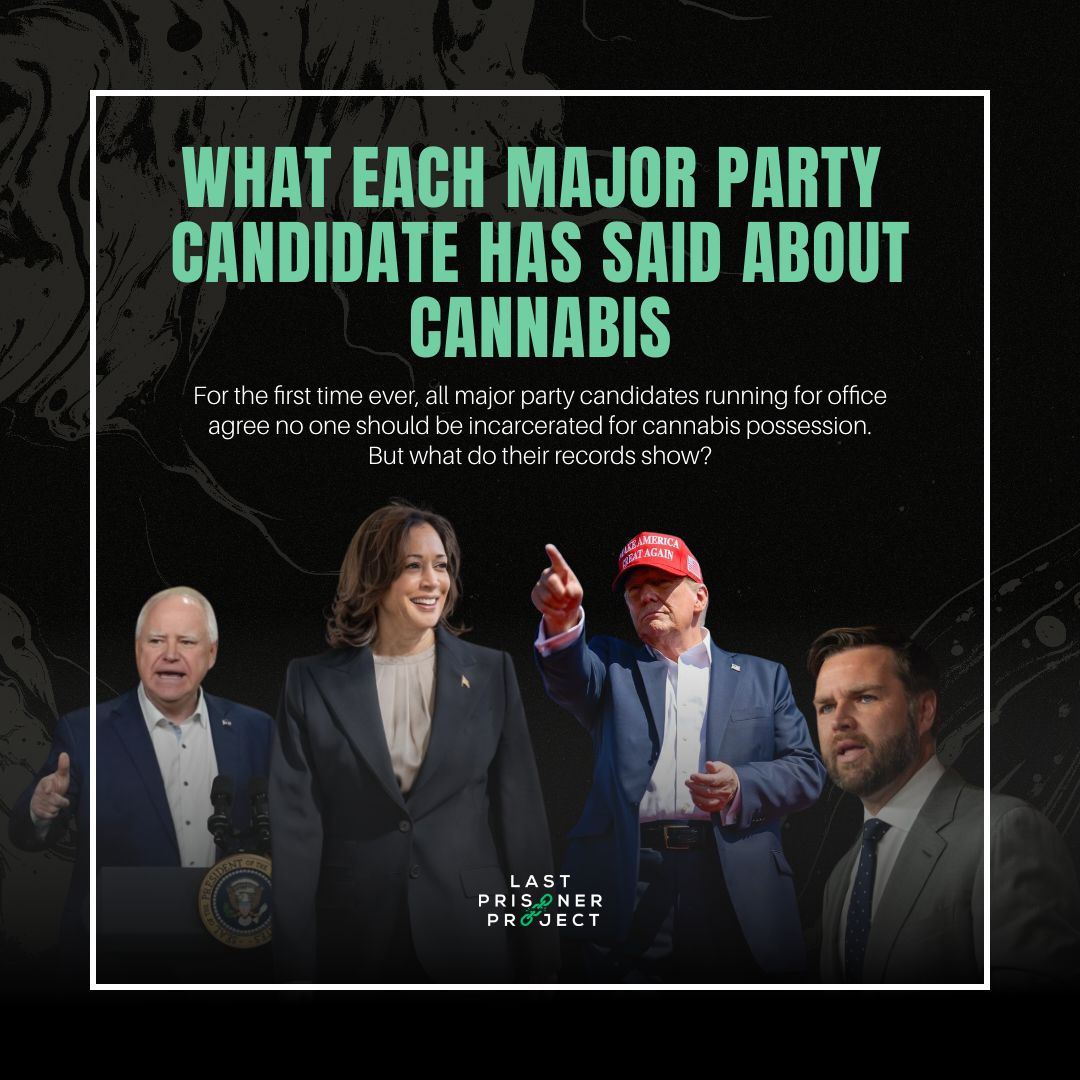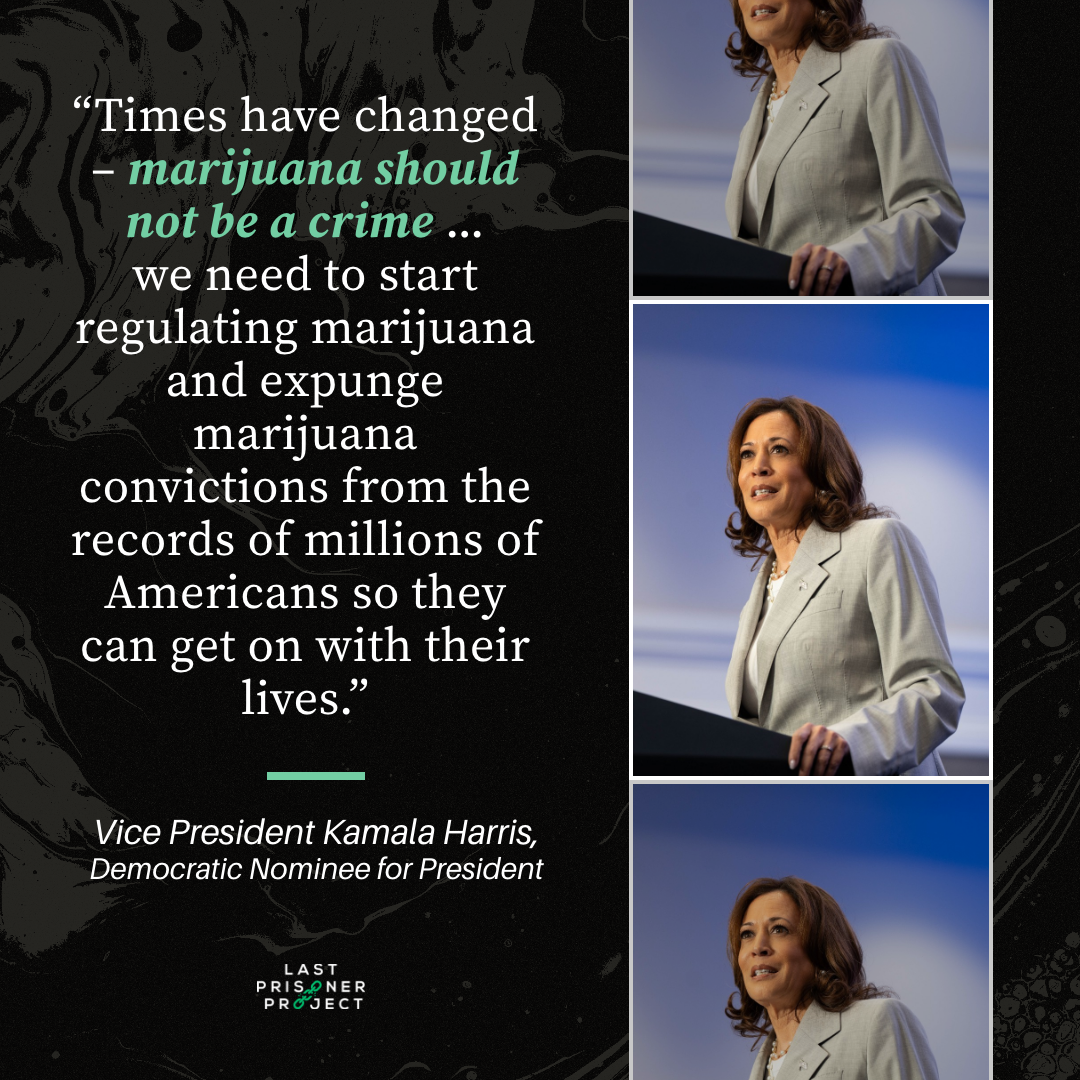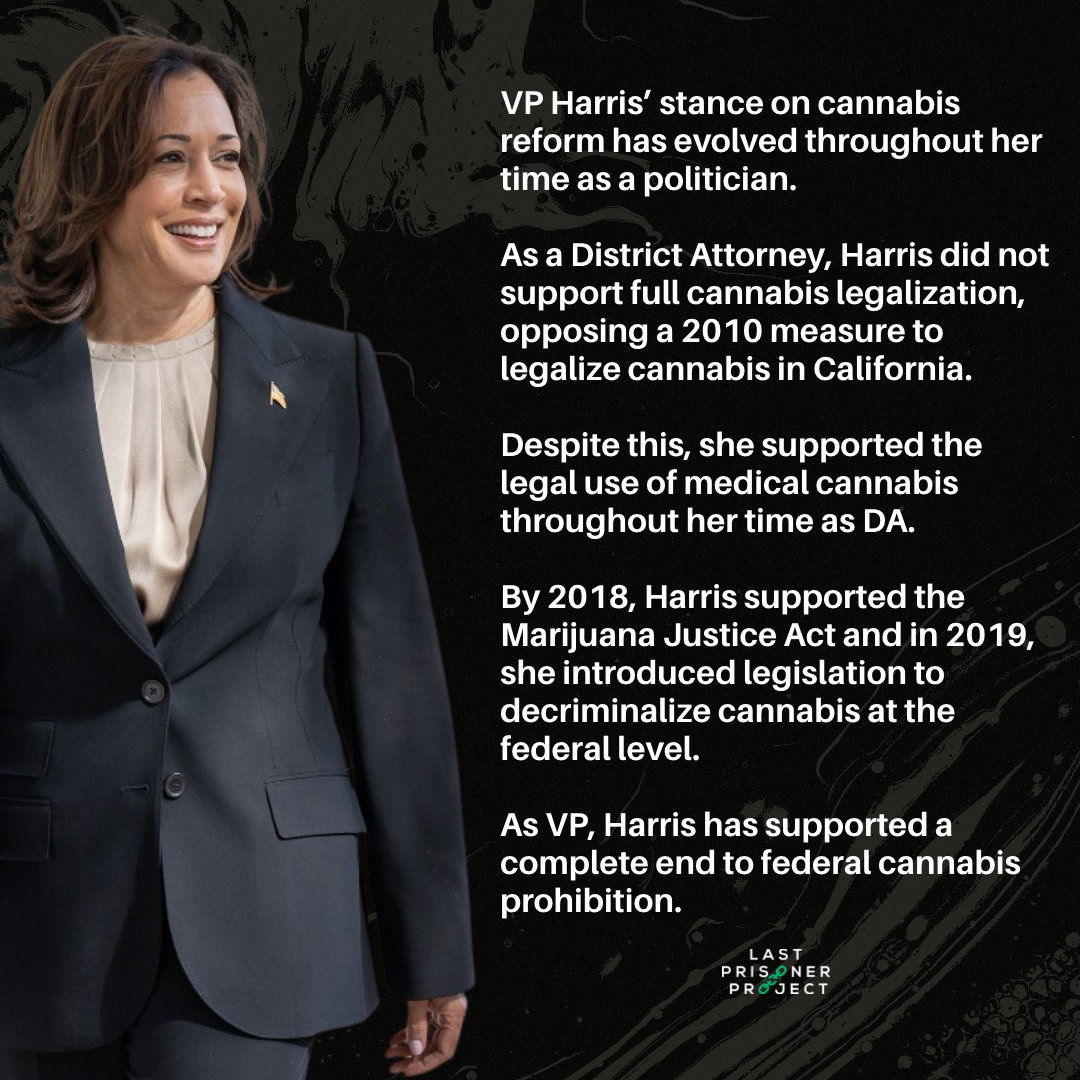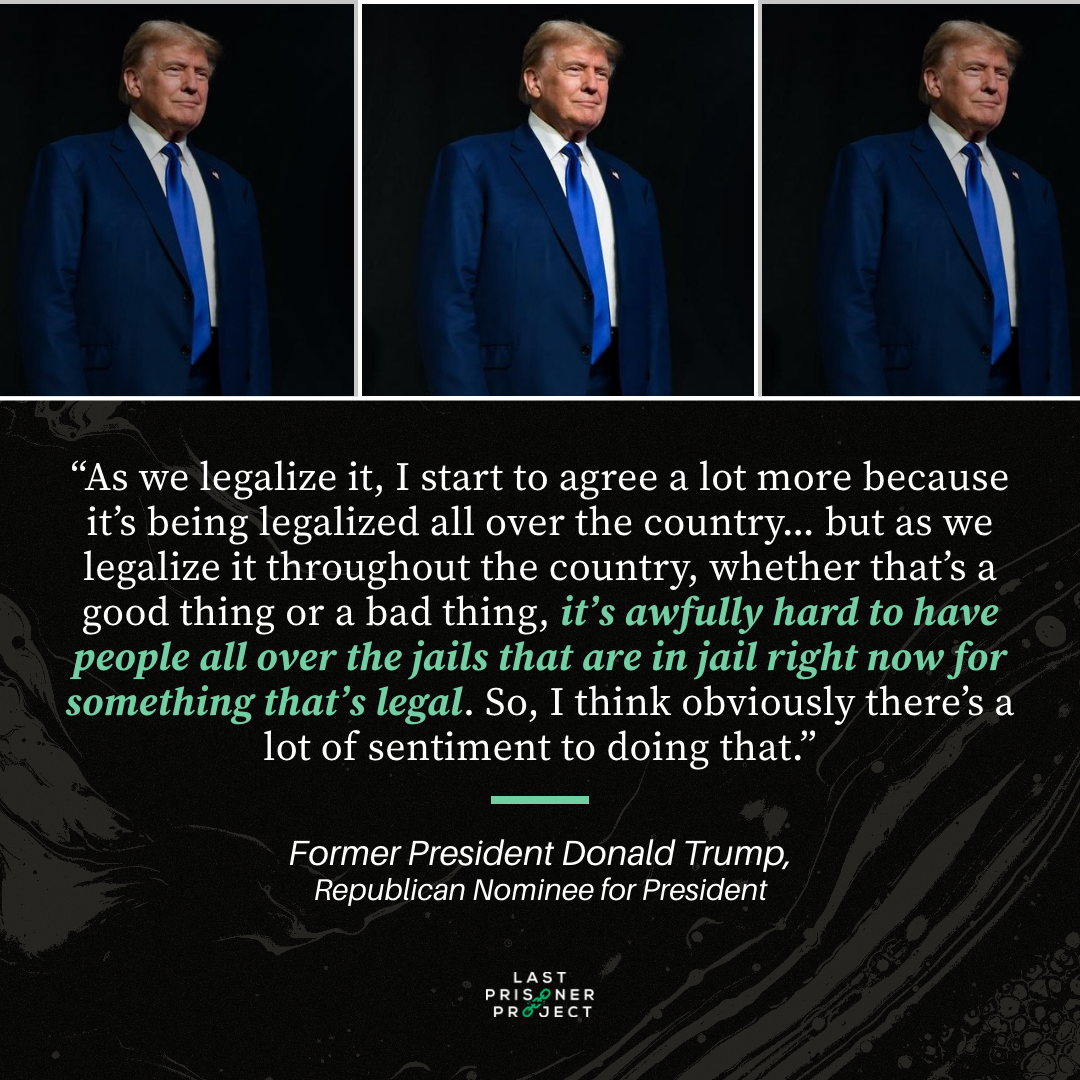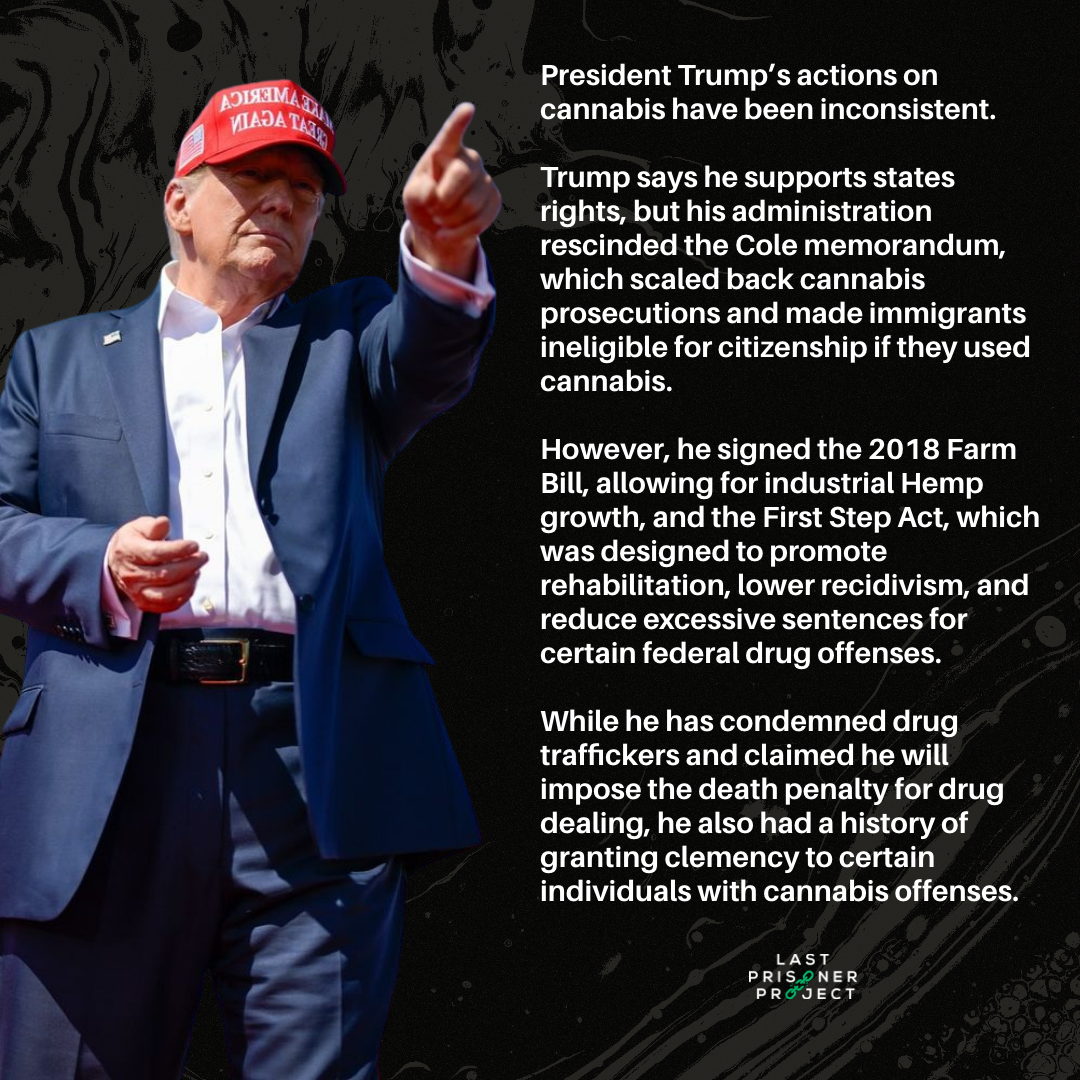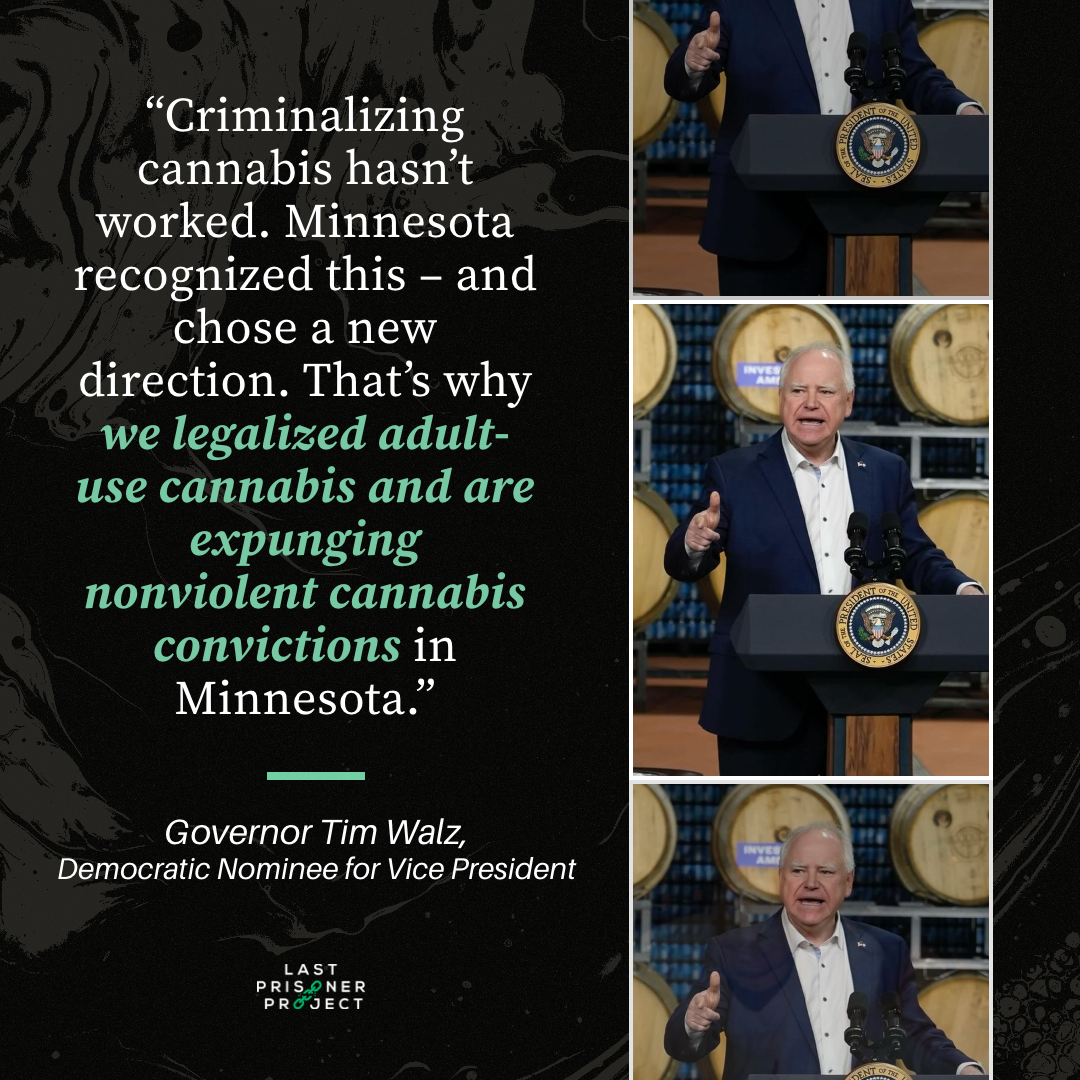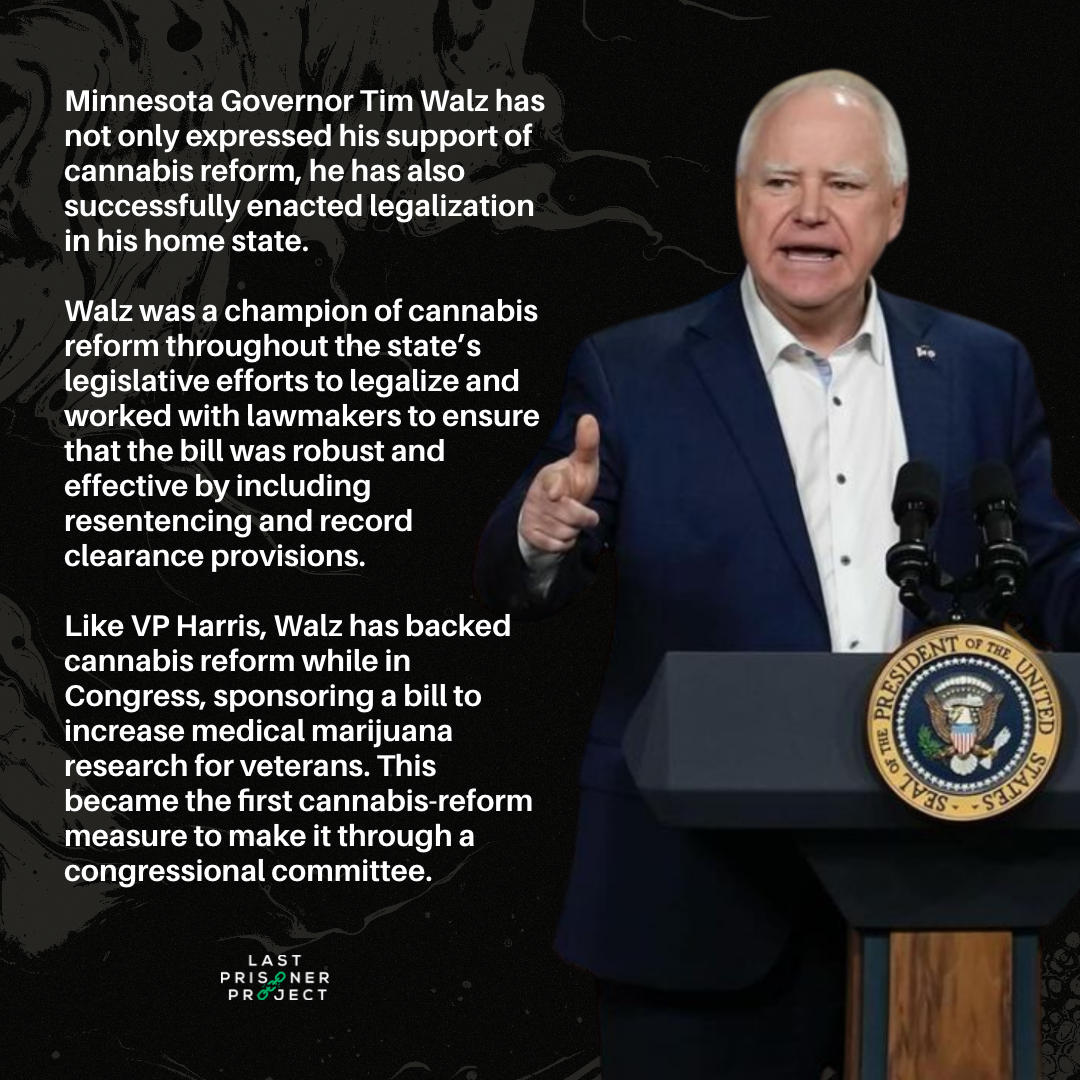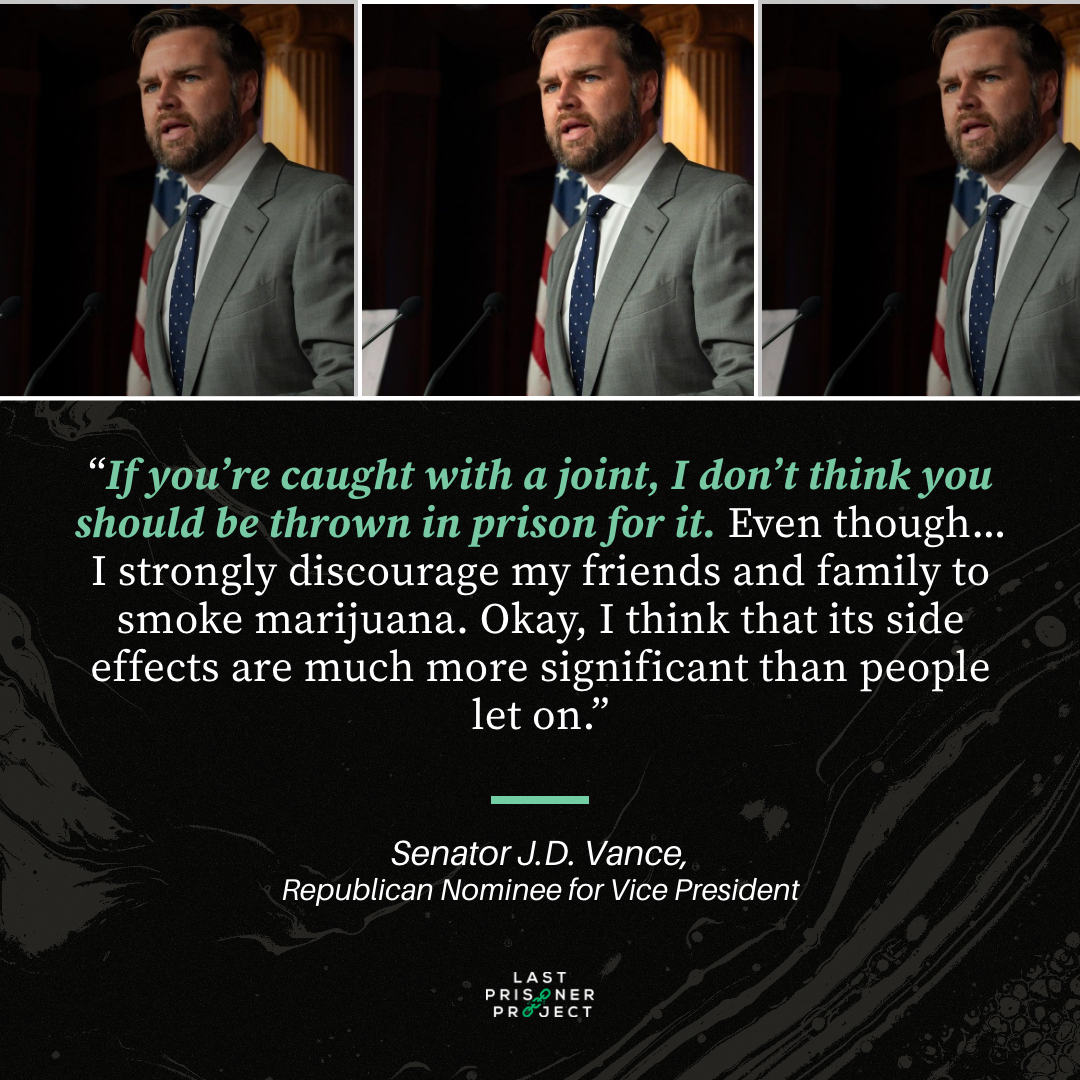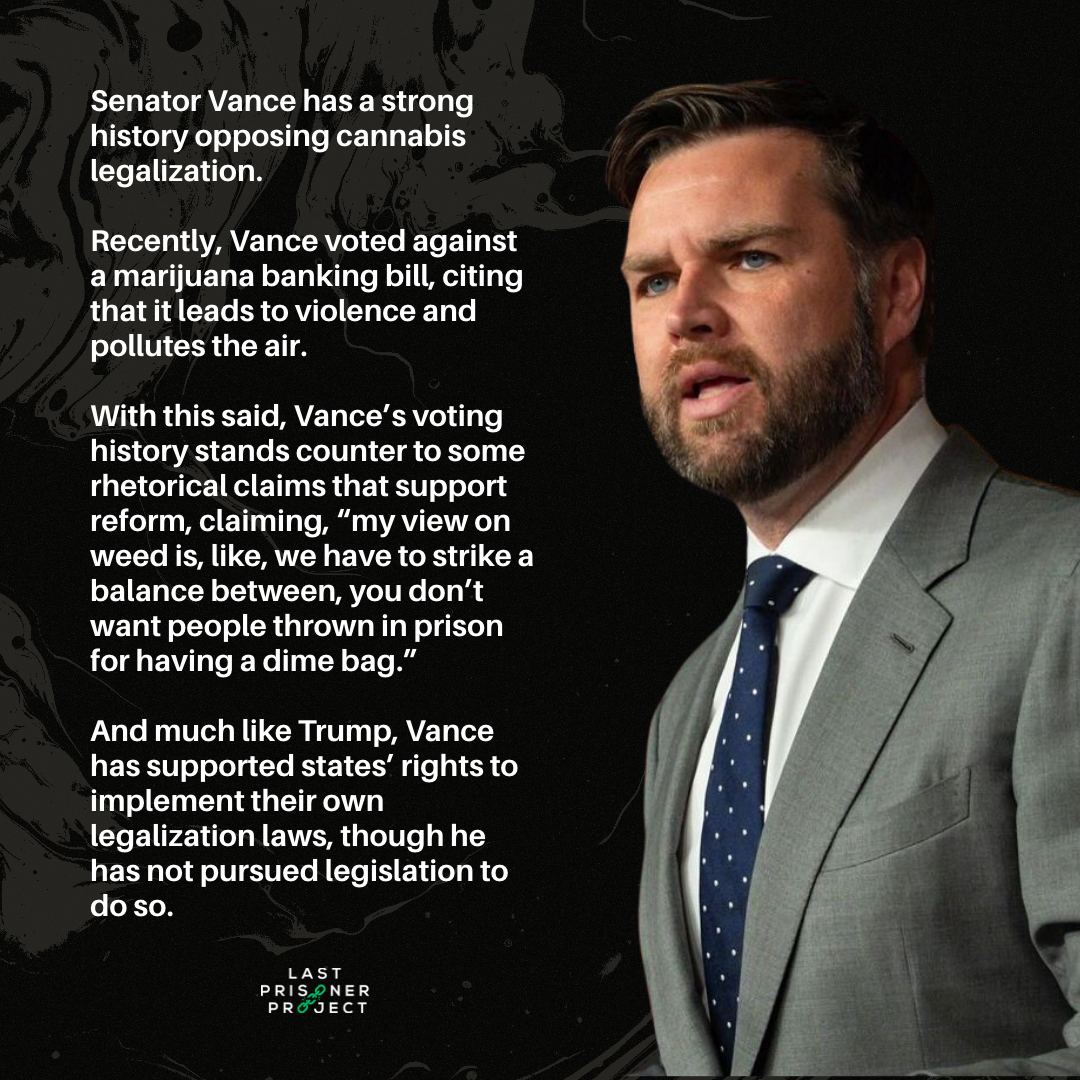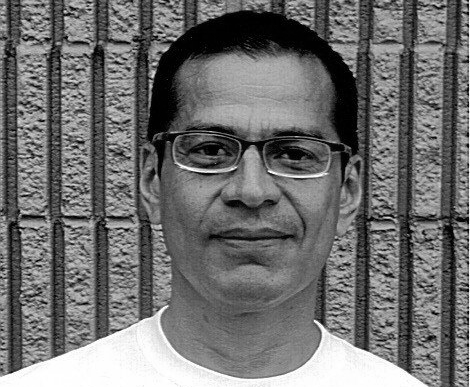Cannabis Stances in the 2024 Presidential Run
*This post is for informational purposes only. As a 501c3, Last Prisoner Project does not endorse political candidates.*
DONALD J TRUMP, PRESIDENTIAL NOMINEE (R)
When Donald Trump ran for President in 2016, it was the start of his political career in many ways. Before this, Trump had spent his life as a businessman. While he was certainly in the public eye and voiced political opinions, he had very minimal history actually taking political stances. Because of this, it is difficult to track the history of Trump’s stance on cannabis policy, as it has an enigmatic past.
When it comes to cannabis legalization,
Trump claims that he supports states rights and it’s certainly true that he didn’t pursue action against state-legal cannabis programs, but his administration took actions counter to that stance. Not only did his administration rescind the Obama-era Cole memorandum that scaled back cannabis prosecutions, but it also made immigrants ineligible for citizenship if they used cannabis. Trump also signed the 2018 Farm Bill into law, allowing for industrial Hemp growth. Similarly, President Trump signed the bipartisan sentencing reform bill the First Step Act into law in 2018, which was designed to promote rehabilitation, lower recidivism and reduce excessive sentences for certain federal drug offenses.
Trump’s wavering opinions and actions on cannabis are also clear in his past clemency actions. While he has made harsh comments condemning drug traffickers and claiming he will impose the death penalty for drug dealing, he also had a strong clemency record for individuals with cannabis offenses, ultimately commuting 16 people of 27 offenses and pardoning six individuals. *In August 2024 on the campaign trail, Former President Donald Trump said he is starting to “agree a lot more” that individuals should not be criminalized for cannabis when it’s being legalized across the country and that he also will be supporting Florida’s vote on Amendment 3 coming up in November.
J.D. VANCE, VICE PRESIDENTIAL NOMINEE (R)
Republican vice presidential pick J.D. Vance has a strong history opposing cannabis legalization. Recently, Vance voted against a marijuana banking bill, citing that it leads to violence and pollutes the air. With this said, Vance’s voting history stands counter to some rhetorical claims that support reform, claiming, “my view on weed is, like, we have to strike a balance between, you don’t want people thrown in prison for having a dime bag.” And much like Trump, Vance has supported states’ rights to implement their own legalization laws, though he has not pursued legislation to do so.
KAMALA HARRIS, PRESIDENTIAL NOMINEE (D)
Vice President Harris’ stance on cannabis reform has evolved throughout her time as a politician and in most instances, has mirrored the sentiments of public opinion and trends of the time. As a District Attorney decades ago, Harris did not support full cannabis legalization, opposing a 2010 measure to legalize cannabis in California. Despite this, she supported the legal use of medical cannabis throughout her time as DA.
Harris’ stance evolved in the following decades, as she became a junior senator and in the lead up to her 2020 run for president. By 2018, Harris supported the Marijuana Justice Act and in 2019, she introduced legislation to decriminalize cannabis at the federal level.
In her time as Vice President, Kamala Harris has supported a complete end to federal cannabis prohibition and has sided with legislation to do so. She also touted the administration’s categorical cannabis possession pardons with advocates at the White House. *In September 2024, Kamala harris confirmed her position saying "I just feel strongly, people should not be going to jail for smoking weed, and we know historically what that has meant and who has gone to jail. Second, I just think we have come to a point where we have to understand that we need to legalize it and stop criminalizing this behavior.Actually this is not a new position for me, I have felt for a long time we need to legalize it. So that’s where I am on that.”
TIM WALZ, MINNESOTA GOVERNOR (D), VICE PRESIDENTIAL NOMINEE
Minnesota Governor Tim Walz has not only expressed his support of cannabis reform, he has also successfully enacted legalization in his home state. Walz was a champion of cannabis reform throughout the state's legislative efforts to legalize and worked with lawmakers to ensure that the bill was robust and effective by including resentencing and record clearance provisions. Like Vice President Harris', Walz has backed cannabis reform while in Congress, sponsoring a bill to increase medical marijuana research for veterans. This became the first cannabis-reform measure to make it through a congressional committee.
*Updated Sep. 30th to reflect Vice President Harris' and Former President Trump's newest statements.* *This post initially included info on other potential vice presidential candidates before Gov. Tim Walz (D) was announced.*
MARK KELLY, ARIZONA SENATOR (D), POTENTIAL VICE PRESIDENTIAL NOMINEE
Mark Kelly, the Democratic Senator from Arizona, has made his cannabis support clear throughout his time in the Senate. Not only has he expressed support for an Arizona ballot initiative to legalize cannabis in 2020, he has also signed onto multiple bills providing banking access for state-legal marijuana businesses at the deferral level. Kelly has also expressed support for removing cannabis from Schedule I under federal law.
JOSH SHAPIRO, PENNSYLVANIA GOVERNOR (D), POTENTIAL VICE PRESIDENTIAL NOMINEE
Pennsylvania’s Governor, Josh Shapiro, has expressed his support for cannabis reform in Pennsylvania, and has pursued legislation to do so. He has requested lawmakers present him with legalization proposals in the state and has claimed that there is bipartisan momentum behind legalization that the state needs to respond accordingly to. Additionally, Shapiro signed a bill in December that allows licensed medical marijuana growers to sell directly to their patients instead of requiring a medical middle man for retailing.
ANDY BESHEAR, KENTUCKY GOVERNOR (D), POTENTIAL VICE PRESIDENTIAL NOMINEE
Andy Beshear, Kentucky’s Democratic Governor, has gone beyond the geographic norms of his state in expressing strong support for cannabis reform and clemency. Beshear not only enacted a medical cannabis legalization law last year, he has also worked to grant pardons for some individuals still facing penalties for past cannabis-related crimes. In the face of struggling to recreationally legalize cannabis given the state’s broader political landscape, Beshear has also advocated for letting Kentucky farmers grow and sell cannabis outside of the state. He has also expressed alignment with Biden’s support for mass cannabis clemency action and has spoken at the White House to advocate for potential cannabis pardon recipients.


